
7 Days to Better Sleep
Posted: 07 March 2024
We’re celebrating World Sleep Week with our guide to focusing and implementing positive habits to improve the quality of your sleep in only 7 Days, leading to a happier and healthier you. Read on and start these positive habits for yourself.
In today's world, achieving restful sleep can often feel like an elusive goal. From hectic schedules to endless distractions, many of us struggle to unwind and find the rest we need to thrive. However, prioritising sleep is essential for our physical, mental, and emotional well-being. That's why we've crafted a simple day-by-day guide to help you reclaim your nights and achieve better sleep.
Over the course of seven days, we'll explore practical strategies and actionable steps to transform your sleep habits, from setting intentions and unplugging from technology to curating your sleep environment and practicing self-care rituals. By following this week-long journey, you'll learn how to cultivate healthy sleep habits, create a tranquil sleep environment, and enjoy the restorative benefits of a good night's sleep.

Day 1: Set Your Intentions for the Week
Setting intentions for the week ahead is a crucial first step in achieving better sleep. By focusing your mind on the goal of improving your sleep quality, you are priming yourself for success. Start Day 1 by reflecting on your current sleep habits and identifying areas for improvement. Consider what factors may be contributing to poor sleep, such as stress, caffeine consumption, or irregular sleep schedules. Then, set specific and achievable goals for the week ahead. Whether it's establishing a consistent bedtime routine, reducing screen time before bed, or improving your sleep environment, having clear intentions will help guide your actions throughout the week.
Questions to Ask Yourself:
- What are my current sleep patterns, and am I getting enough restful sleep each night?
- What factors may be contributing to poor sleep quality, such as stress, caffeine consumption, or irregular sleep schedules?
- How do I feel upon waking each morning?
- What are my goals for improving my sleep habits, and what specific changes am I willing to make to achieve them?
- What activities or habits could I incorporate into my bedtime routine to promote relaxation and prepare my body and mind for sleep
- How can I create a cosy sleep environment that minimises disruptions?
- What motivates me to prioritise sleep?
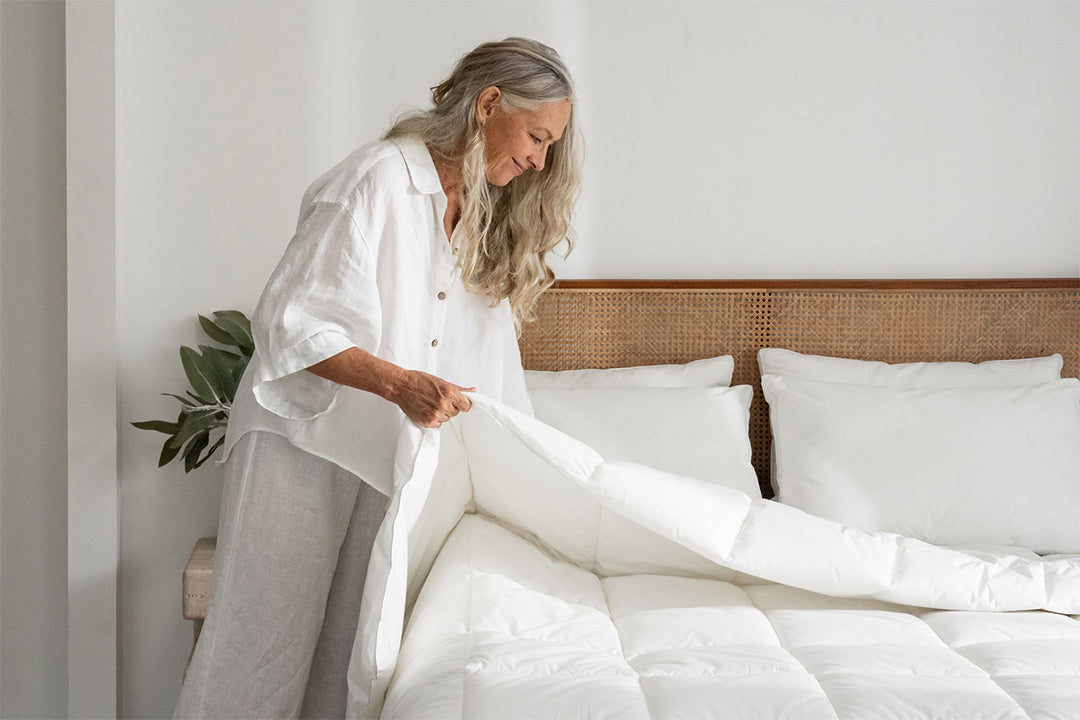
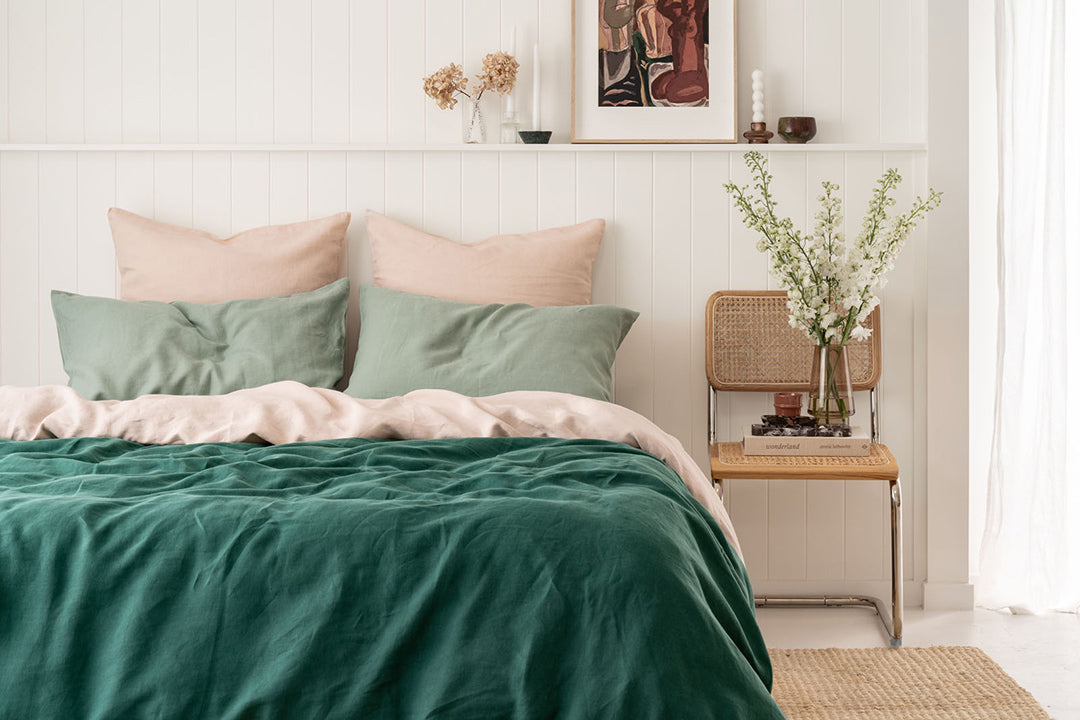

Day 2: Down The Devices
Technology has become an integral part of our daily lives, but excessive screen time, especially before bed, can disrupt our natural sleep-wake cycle. On Day 2, make a conscious effort to reduce your screen time and prioritise activities that promote relaxation and mental calmness. Instead of scrolling through your phone or watching TV before bed, opt for activities like reading a book. Making the conscious decision to put away digital devices before bedtime and opting for a book instead can be a game-changer for your sleep quality and overall well-being. Engaging in screen-free time allows your mind to unwind from the day's stresses and promotes relaxation and sets the stage for a restful night's sleep. Unlike the stimulating effects of screens, which emit blue light that can disrupt your body's natural sleep-wake cycle, reading offers a gentle transition into sleep by calming the mind and reducing stress levels. The act of reading stimulates the brain in a different way, encouraging focus and concentration while promoting mental clarity and cognitive function. And often you’ll find that you read a few pages and you’re already drifting off into sleep time mode.

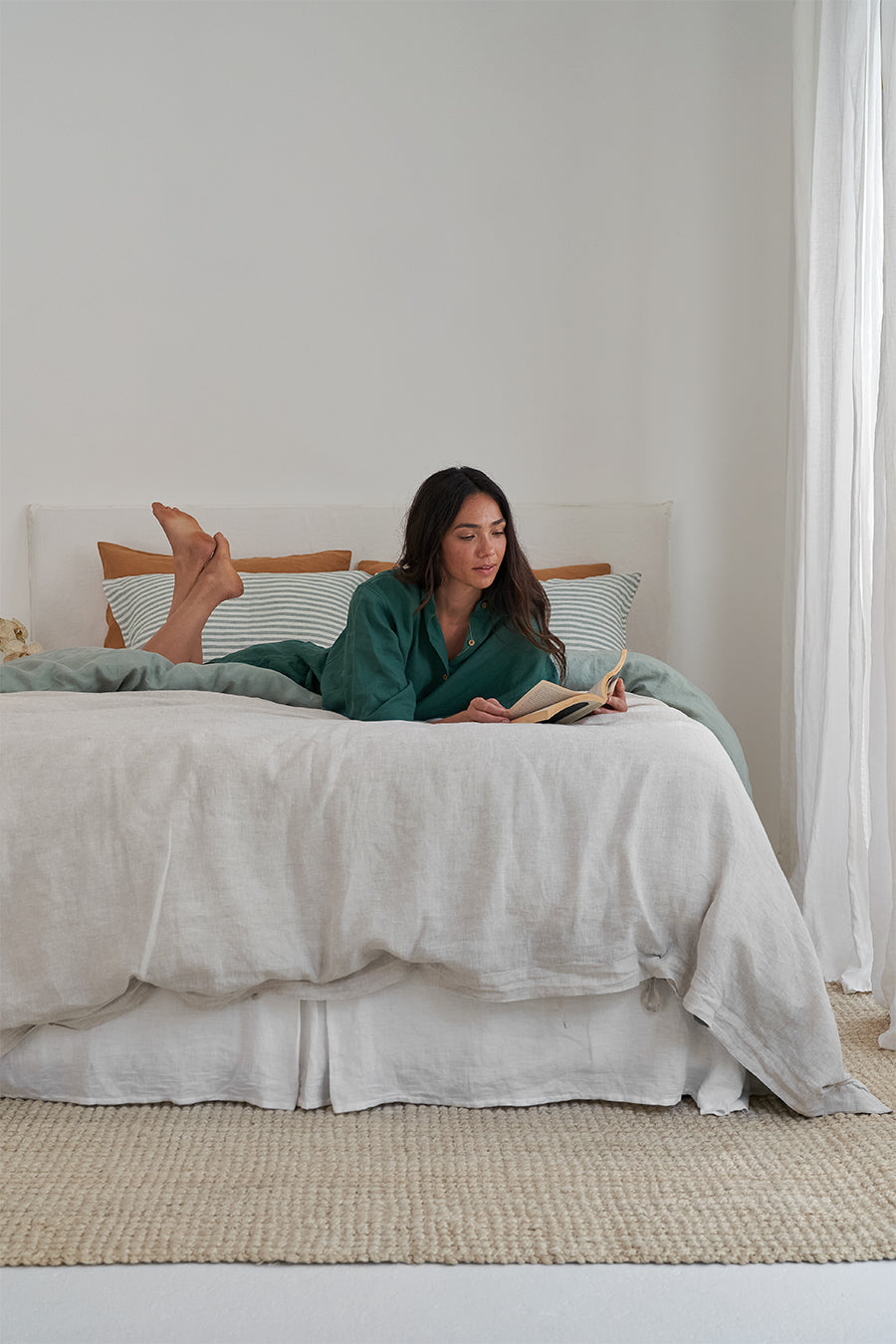

Day 3: Focus on Food for Sleep
What you eat can significantly impact your sleep quality. On Day 3, focus on incorporating foods into your diet that promote relaxation and improve sleep. Foods rich in tryptophan, such as turkey, chicken, nuts, and seeds, can help increase the production of serotonin, a neurotransmitter that regulates mood and sleep. Additionally, foods high in magnesium, such as leafy greens, bananas, and almonds, can help relax muscles and promote deeper sleep. Avoid consuming large meals, spicy foods, and caffeine close to bedtime, as these can disrupt digestion and interfere with sleep.



Day 4: Prep Your Bedroom
Creating a conducive sleep environment is essential for achieving restful sleep. Take some time on Day 4 to evaluate your bedroom and make any necessary adjustments to promote better sleep. Consider the activities that take place in your bedroom and aim to create a space that is primarily used for sleep and relaxation. Use a checklist to ensure optimal conditions for sleep, including proper air flow, comfortable room temperature, and minimal noise and light disturbances. Additionally, explore the principles of color theory and how different colors can influence mood and sleep quality. Opt for calming and soothing colors, such as soft blues, greens, and neutrals, to create a tranquil sleep environment.



Day 5: Sign up to Self Care
Establishing a nightly ritual can help signal to your body that it's time to unwind and prepare for sleep. On Day 5, design a wellness routine that incorporates self-care activities into your evening routine. This may include activities such as journaling, practicing gratitude, or enjoying a warm bath. Incorporate breathing exercises and gentle stretching into your routine to promote relaxation and alleviate tension in the body. It could be a great idea to designate special days of the week to a mini at home facial, or body routine. You can also explore guided meditation or relaxation techniques to help calm the mind and prepare for sleep.


Day 6: Sweat for Sleep
Regular exercise is essential for overall health and can have a significant impact on sleep quality. Take some time on Day 6 to assess your current exercise routine and identify opportunities to increase physical activity. Aim for at least 30 minutes of moderate-intensity exercise most days of the week, but be mindful of not exercising too close to bedtime, as this can stimulate the body and make it difficult to fall asleep. The important point is that moving your body for as little as 15 minutes a day can assist, so if you don’t have time to get to a gym you can hopefully slot in time in your day to follow an online exercise course in the morning, or go for a run when you get home.

Day 7: Invest in Better Bedding
Investing in high-quality bedding can make a significant difference in your sleep quality and overall comfort. On Day 7 take the time to assess your bedding and consider upgrading your pillows, sheets and quilt covers, mattress toppers and quilts - focusing on high quality materials that promote better sleep. Look for pillows that provide adequate support for your head and neck to prevent stiffness and discomfort such as our best selling Hotel Cloud Collection range. Consider investing in quality French Flax linen bedding which is made from natural, breathable fibres and regulates a beautiful air flow. Creating a cosy and inviting sleep environment can help you relax and unwind, setting the stage for a restful night's sleep.
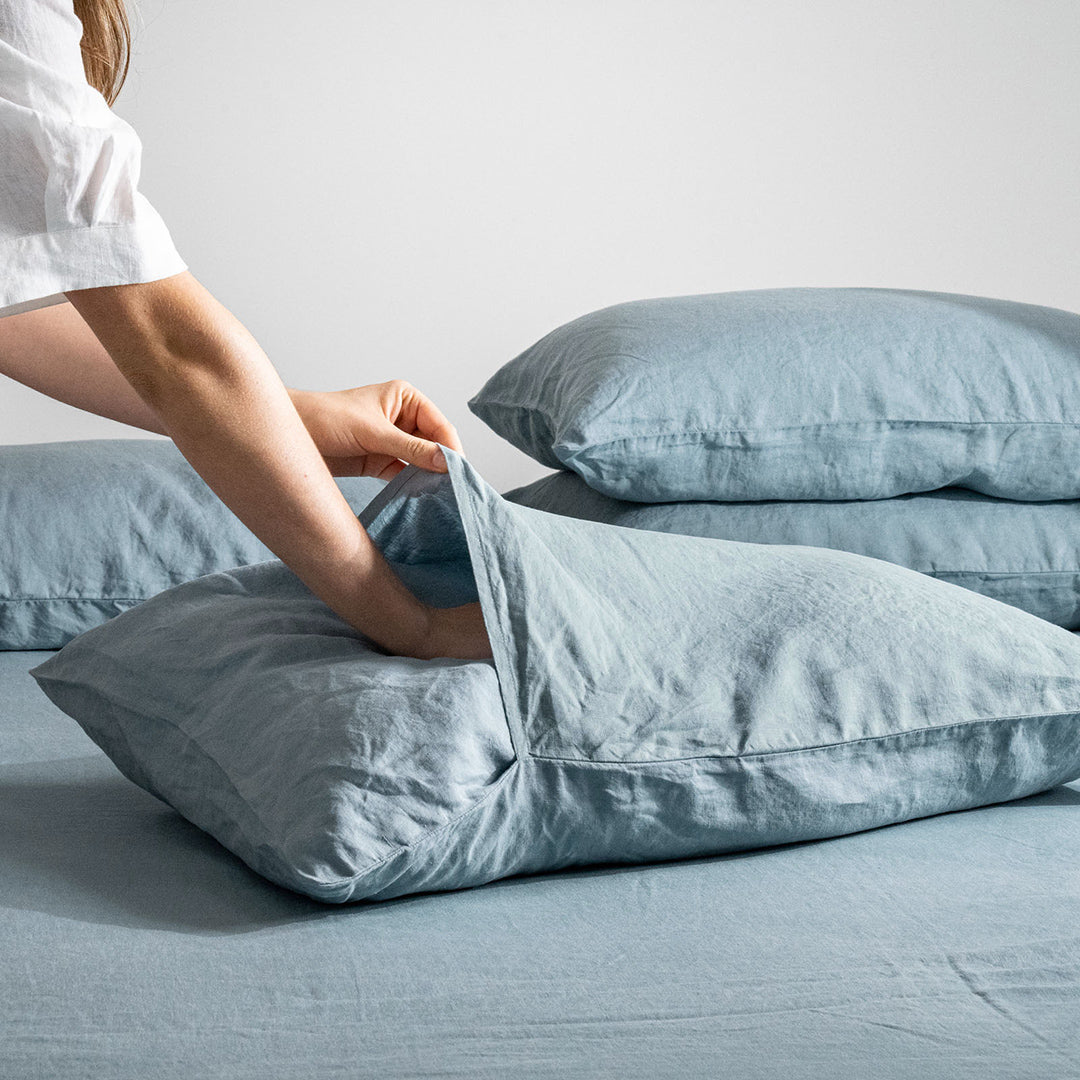
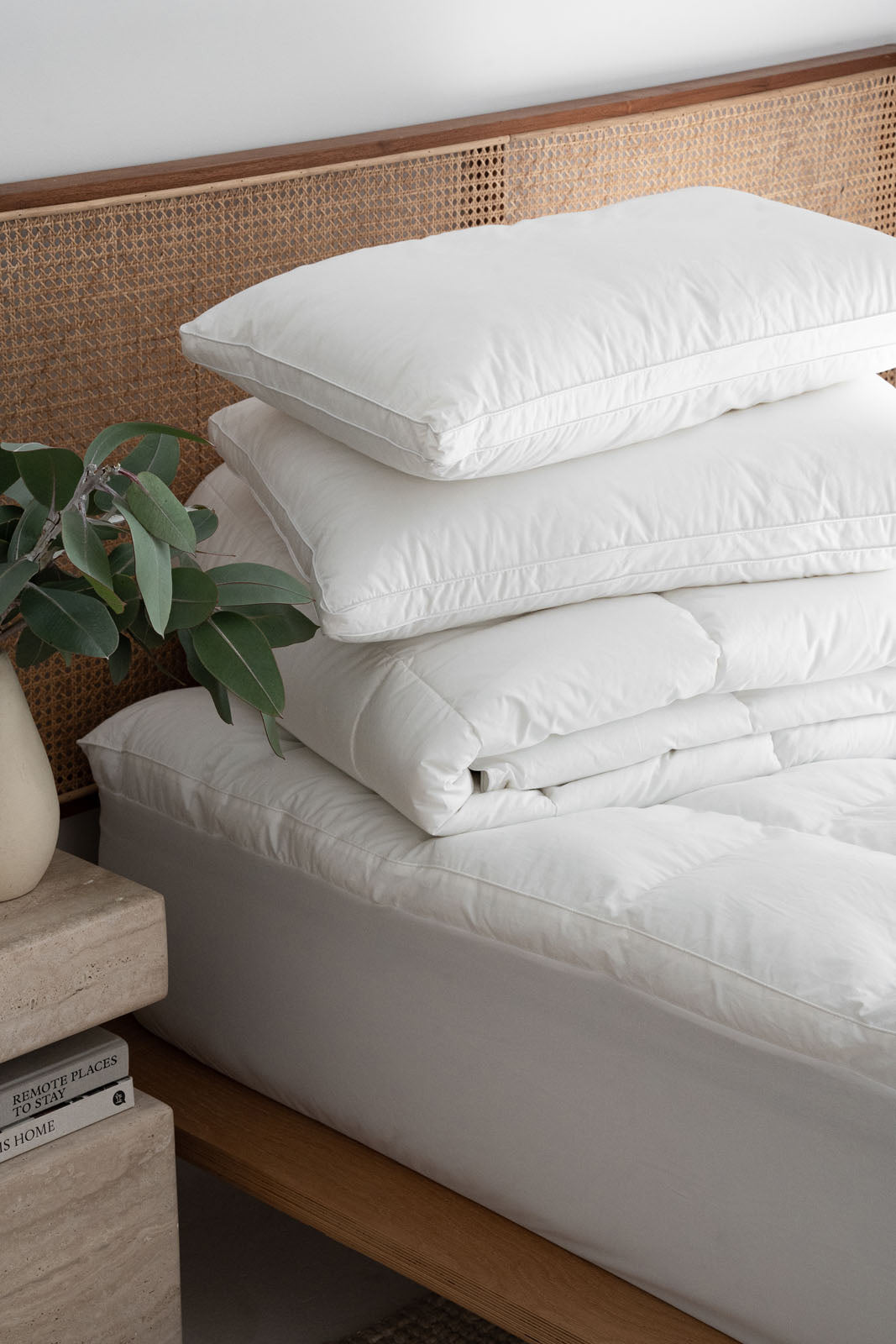
By following this week-long guide, we hope you can establish healthy sleep habits and create an environment conducive to restful sleep. By setting intentions, reducing screen time, nourishing your body with sleep-promoting foods, optimising your sleep environment, incorporating self-care rituals, staying active, and investing in quality bedding, you can improve your sleep quality and wake up feeling refreshed and rejuvenated each day.









